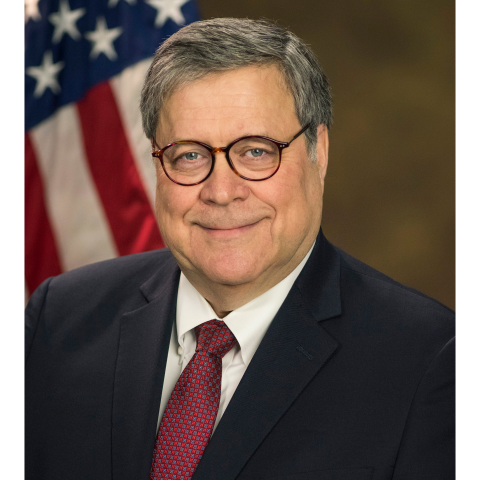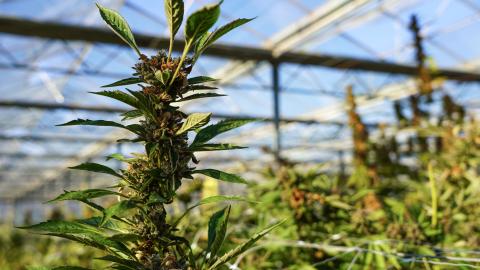With only three months until the election, the Biden administration is attempting to score political points by launching a proceeding to loosen federal restrictions on marijuana. Unable to satisfy either the legal or scientific standards for making this change, the Biden-Harris administration is engaging in a cynical shell game, rewriting the rules and ignoring the science to achieve its partisan objective.
Federal law — the Controlled Substances Act of 1970 — requires that the Drug Enforcement Administration (DEA) classify drugs according to a five-tier scheduling system. Schedule I drugs are those that have no currently accepted medical use and present high potential for abuse and dependence, and their production and distribution are generally prohibited under federal law.
In contrast, drugs that have an accepted medical use are placed on less restrictive Schedules II through V, subjecting their production, distribution and medical use to federal regulation based on their relative risk of abuse and dependence, with Schedule II drugs being the most strictly, and Schedule V the most lightly, controlled.
There have been previous attempts to loosen restrictions on marijuana by rescheduling it at a lower level. These attempts have failed.
The Biden-Harris administration wants to loosen marijuana laws to placate their political base, even though the science doesn't support the move.
Most recently, in 2016, an attempt during the Obama administration failed when the Department of Health and Human Services (HHS) recommended that the DEA not reschedule marijuana, concluding that the drug "has a high potential for abuse, has no accepted medical use in the United States, and lacks an acceptable level of safety for use even under medical supervision." But eight years later, the HHS has reversed course under political pressure from the Biden administration — even though the DEA has not endorsed a change.
Pandering to progressive voters, the administration is pushing hard to reschedule marijuana by bypassing the DEA. In October 2022, President Joe Biden had asked HHS Secretary Xavier Becerra and Attorney General Merrick Garland to "expeditiously" review marijuana’s status as a Schedule I substance.
In response, HHS recommended rescheduling marijuana, sidestepping the established standards for scheduling drugs and conjuring up a new set of criteria designed to deliver the administration’s desired result. Concluding that available data did not support rescheduling, the DEA disagreed with the proposed change, and DEA Administrator Anne Milgram did not sign off on it.
Instead, Attorney General Merrick Garland, noting the "sharply different views" between DEA and HHS, came over the top of DEA to sign the final proposed rule. Before the proposed rule becomes final and effective, the DEA must receive evidence at a formal hearing conducted by an administrative law judge.
Politics, not science, is driving the Biden-Harris administration’s push to reschedule marijuana. Had it not jettisoned established standards and lessened the rigor of the scientific process, the administration could not validate rescheduling.
In the first place, marijuana plainly meets the first criteria of Schedule I drugs: It has a high potential for abuse. This was true eight years ago when HHS reached that conclusion and, since then, none of the facts supporting this judgment have changed. On the contrary, the potential for abuse has only increased as rising THC concentrations have made the drug more and more potent.
The data continues to give the lie to the cannabis industry’s portrayal of marijuana as a harmless, feel-good drug. Marijuana is highly addictive: One-third of people who used marijuana in the past year met the criteria for addiction, and half of daily users become dependent on the drug.
Furthermore, marijuana has wide-ranging negative effects on mental and physical health. Long-term cannabis use has been credibly linked to increased risks of psychosis, including schizophrenia; suicidal ideation; and hallucinations or paranoia. Marijuana is particularly harmful to children and teenagers, among whom the drug has become increasingly popular.
The facts are also clear that marijuana meets the second criteria for Schedule I drugs. Just as former President Barack Obama’s HHS previously found in 2016, marijuana still has no accepted medical use in the United States.
While the FDA has approved several specific synthetic compounds derived from marijuana for treating certain seizures, chemotherapy-related nausea and AIDS-related anorexia, the FDA has never approved cannabis itself — nor any other marijuana compound or derivative — for the treatment of any disease.
FDA currently states that "there has been no FDA review of data from rigorous clinical trials to support that these unapproved products are safe and efficacious for the various therapeutic uses for which they are being used." Because marijuana has no legitimate medical use, it cannot be prescribed by doctors.
To circumvent the inconvenient reality that marijuana has no approved medical use, the Biden-Harris HHS argued that the fact some states have passed laws allowing medical use of marijuana is sufficient to establish that it has legitimate medical use.
This is plainly fallacious. In the U.S., the availability of drugs for medical use is not based on their political popularity but only on the FDA’s decision, based on rigorous scientific study, that the drug is safe, effective and uniformly made. The FDA has still not found an acceptable medical use for marijuana.
Drug laws are meant to protect American citizens — and especially American children — from dangerous substances. But by politicizing the rescheduling process, the Biden administration is playing with people’s lives amid the worst drug crisis our nation has ever faced.
Not all marijuana users go on to use harder drugs, but the vast majority of people who use harder drugs started with marijuana. It is grossly irresponsible to facilitate the use of a gateway drug at a time when more than 100,000 Americans are dying of drug overdoses each year.
A major practical effect of rescheduling is that it will allow those in the marijuana trade to deduct their expenses as business expenses. Essentially, taxpayers would be subsidizing the marijuana industry. Rescheduling would give government sanction to the cannabis industry’s campaign to downplay marijuana’s addictive potential and health risks, allowing weed peddlers to cultivate broad-based dependence on the drug and expand their pool of repeat customers.
This comes at a time when cartels and transnational criminal organizations with connections to Mexico and China have expanded their operation of marijuana cultivation and distribution inside the United States.
We hear a lot from the current administration about the "rule of law." But by ignoring legal standards and scientific evidence in its rush to loosen restrictions on marijuana, the Biden-Harris administration is riding roughshod over the rule of law and playing fast and loose with the health and safety of the American people — all for political gain.
Enjoyed this article? Subscribe to Hudson’s newsletters to stay up to date with our latest content.



















